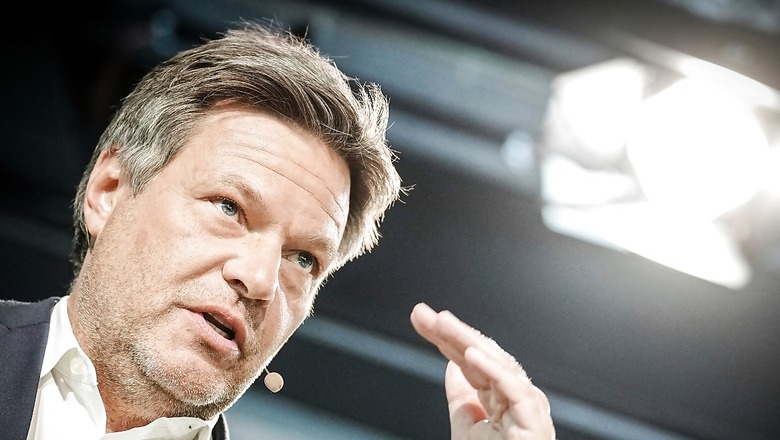
views
Germany’s Vice Chancellor and Minister of Economic Affairs and Climate Action Robert Habeck on Thursday called for diversifying economic partnerships to reduce dependency on China amid rising tensions in the Indo-Pacific region.
Habeck, who is in India to attend the G20 Energy Ministers’ meeting, highlighted the intricate nature of Germany’s relationship with China, acknowledging its position as Berlin’s largest trading partner, but stressed on the importance of de-risking and exploring new avenues for cooperation.
Referring to the close ties between Russia and China, Habeck further said decoupling with China is not easy, but Germany is looking at “de-risking” with China. “We have noticed that China and Russia are in a closer cooperation, and this means that we can’t decouple it from China and nobody wants that. But de-risking it, diversification is of highest importance,” he said.
The global economic dependence on China has become a major concern for countries worldwide. With China emerging as a dominant global economic player, many nations have developed significant trade and investment ties with the Asian powerhouse. As the German minister pointed out, various European and American companies have made substantial investments in China, benefiting from its vast consumer market and cost-efficient manufacturing capabilities.
However, this economic interdependence has also led to complexities, especially in light of China’s assertive ambitions in the Indo-Pacific region. Tensions between China and Taiwan have been escalating, causing heightened geopolitical concerns and regional instability. China’s assertive stance in the South China Sea and its increasing influence in the Indo-Pacific has prompted nations to reassess their relationships with the Asian giant, balancing economic interests with security considerations.
According to Habeck, globally, political mutual interests are interwoven with economic relations. “Diversification means that other partnerships, the Indo-German partnership, for example, but other ones as well…”
Moreover, frosty relations between China and India have further underscored the need for diversification. The border disputes and geopolitical tensions between the two Asian giants have strained bilateral ties, prompting India to re-evaluate its economic engagements with China.
As countries across the globe navigate the delicate balance of economic interests and geopolitical realities, India has increasingly pitched itself as an alternative destination for manufacturing and investment for those who are willing to either diversify or move away their bases from China.
The German Vice-Chancellor stressed that while complete decoupling from China is not a feasible option, de-risking and diversification are of paramount importance. “There’s mutual interest from the German side and the Indian side to strengthen our cooperation, bringing more companies together,” the German minister said.
Ahead of his visit, Habeck told German media representatives that, as the world’s most populous country, India is considered a key growth market. He affirmed Germany’s interest in expanding and deepening its strategic partnership with India, which, he said, would also strengthen the resilience and diversification of the German economy. In particular, he pointed to untapped cooperation potential in renewable energy and green hydrogen sectors.
During his stay, Vice-Chancellor Habeck is expected to hold high-level meetings with Minister of Commerce and Industry Piyush Goyal, External Affairs Minister S Jaishankar and Minister for New & Renewable Energy RK Singh.


















Comments
0 comment